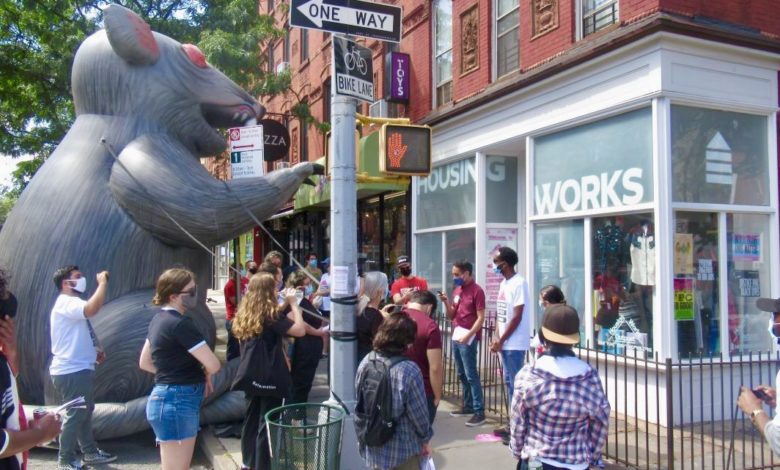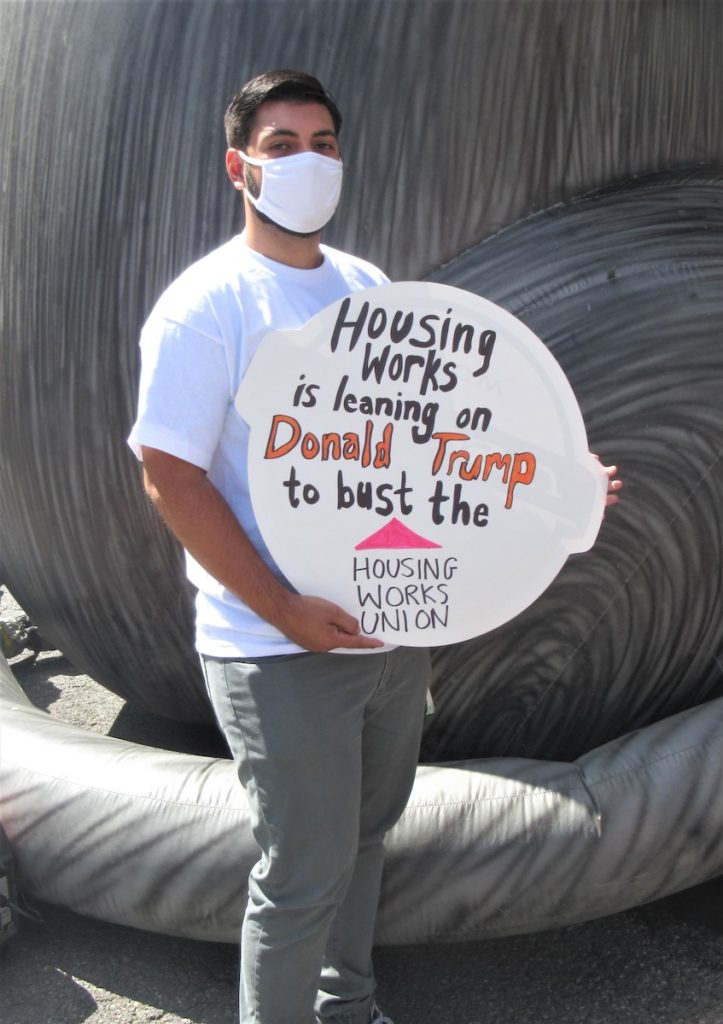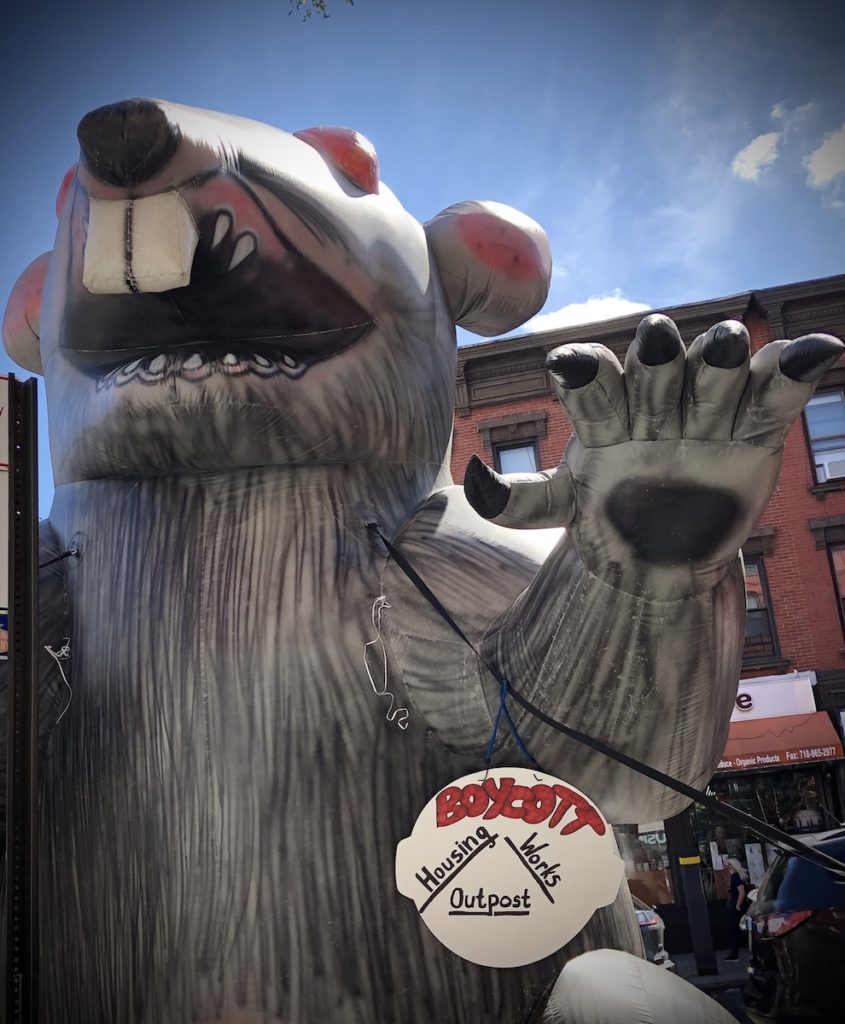
On Sept. 12, and 19, union organizers and their allies demonstrated outside of a new “outpost” from Housing Works, a non-profit born from the radical AIDS activist group ACT UP. The action was part of an ongoing unionization campaign by workers at Housing Works, one met with resistance from the non-profit’s leadership since the campaign went public in summer 2019. The organization runs thrift stores and offers medical services, case management and residential properties.
The action, led by a group of former and current workers, brought attention to the store’s re-opening with all-volunteer labor, not hiring back any of the paid employees who worked there prior its closing due to the pandemic.
Housing Works Thrift Stores closed in March after the state-mandated lockdown due to COVID-19. This specific location opened on Sept. 12, under the pretense of being “100% community powered.” What this truly means is that instead of paying workers and creating jobs, Housing Works will be running the store and gaining profit entirely through volunteers.
The organization made 196 furloughs and layoffs as the pandemic hit, including in retail as well as in social services. As New York began to slowly re-open, Housing Works alleges that all workers were offered their positions back. Union organizers maintain this is not true.
Workers don’t cross the line, show solidarity with demonstrators
Boycotters brought out the famous “Scabby the Rat,” an inflatable rat used across New York City to publicly shame anti-union organizations. Workers passed out flyers to passersby saying “we believe it is not fair for Housing Works to rely on unemployed or underemployed working people to work for free.”
At least three volunteers showed up for their shift but instead stood in solidarity with the boycotting workers. After speaking with the workers, volunteer Emily Tomasko, stated that she felt “weird” about going in to volunteer: while she loved the mission of the organization and the environment, she did not feel comfortable crossing the line.
The action resonated with the neighborhood, both longtime and newcomer residents. An outpouring of support from passersby and neighboring stores uplifted the demonstrators, from the deli workers who observed the action and gave extra food to the workers, to MTA bus drivers who honked loudly in support. One community member became so upset by the news that he crossed the line, not to buy clothes, but to voice his concerns to the store manager.
The outpost is notably based in Park Slope, Brooklyn, a once predominantly working class neighborhood which has been rapidly gentrifying since the 1980s. Stores like Housing Works, which sell curated second hand clothing, are seen by many as a symbol of the gentrification that has changed the neighborhood.

Housing Works throws away progressive reputation by union busting
Housing Works has been fighting a union drive in its workforce for over a year. Workers began organizing the entire agency over two years ago, and believed that Housing Works would agree to card-check neutrality given their reputation as a progressive organization. This would have meant that Housing Works remained neutral in employees’ decision to unionize, and would recognize the union simply after a third party verified most employees signed union “cards” showing they wanted to organize.
However, this has not been the case, as Housing Works, advised by the union-busting law firm Seyfarth and Shaw, refused to recognize a neutrality agreement and forced the union to file with the National Labor Relations Board in February 2020. The organization has continued a campaign of intimidation and misinformation against the union organizers,
Throughout the pandemic, Housing Works has relied on the Trump-backed NLRB to delay the union election and has attempted to pit new employees against long-term workers. A mail-in election for March 20, was delayed at the last minute on March 19, due to an NLRB ruling halting all union elections.

Housing Works alleges that their business model has fundamentally changed since COVID-19, and therefore the union should be forced to re-file. This alleged fundamental change is due to opening a DHS “stabilization” shelter for formerly homeless individuals, and scoring a contract with the city to shelter homeless people in COVID isolation hotels during the pandemic. Housing Works has long provided services for homeless people and others in need, making it clear that their real motive in appealing to the NLRB is simply union busting.
On July 9, the Brooklyn NLRB office ruled that the election should go forward with the initial bargaining unit. The ballots were supposed to be mailed out on July 31. Housing Works appealed the decision on July 23, again leaning on the Trump-backed Washington office of the NLRB, which has postponed the election.






